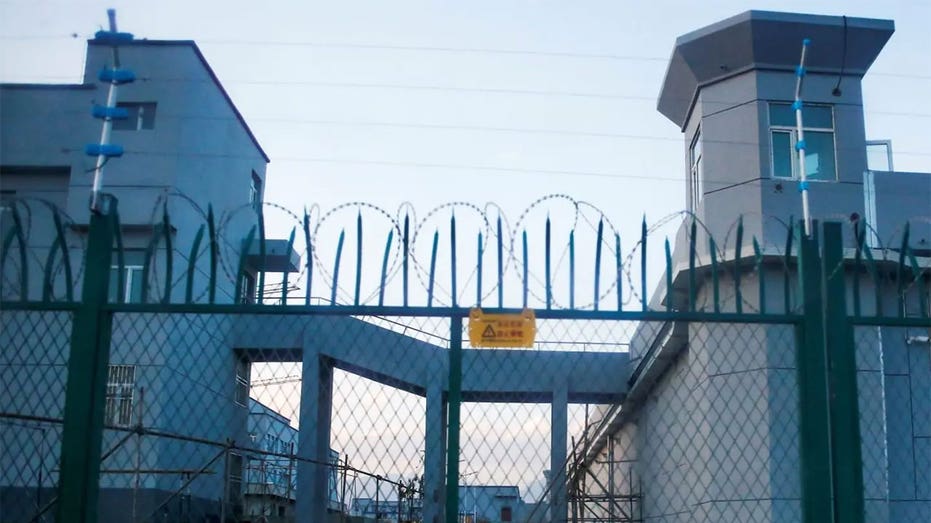China solar panel shipments scrutinized over forced Uyghur labor
Carmakers being questioned over reports of China forced labor
Atlas Organization organizer Jonathan Ward discusses the WSJ piece detailing how automakers are facing Senate inquiry into possible ties to Uyghur forced labor on ‘Maria Bartiromo’s Wall Street.’
Imports to the U.S. from China's Xinjiang region are being scrutinized by Customs and Border Protection (CBP) under a recent law that aims to block goods made with Uyghur forced labor, and shipments of solar panels and related components have been the most commonly flagged product to date.
"Between June 2022 and January 2023, 2,692 shipments were identified as potentially violating the terms of the Uyghur Forced Labor Prevention Act," a spokesperson for CBP told FOX Business. "These shipments were valued at $817,466,574."
The Uyghur Forced Labor Prevention Act (UFLPA) took effect in June 2022 after it passed both chambers of Congress with bipartisan support and was signed into law by President Biden in December 2021.
Under the UFLPA, there is a rebuttable presumption that any goods made in Xinjiang, including supply chain components sent elsewhere for further assembly, are the product of forced labor and subject to import restrictions.
SENATE PROBES MAJOR AUTOMAKERS OVER ALLEGED LINK TO UYGHUR FORCED LABOR IN CHINA
Solar panels are seen on the roof of the Qatar National Convention Center in Doha, Qatar, Sept. 20, 2012. (AP Photo/Osama Faisal, File / AP Newsroom) The rebuttable presumption allows companies whose goods were held for inspection to provide clear and convincing evidence that the imports weren't mined, produced or manufactured wholly or in part by forced labor. Importers can also request an applicability review and claim that their supply chain doesn't include components made with forced labor in Xinjiang so the UFLPA does not apply to their goods. Nearly half of the shipments held for inspection by CBP since the UFLPA came into effect were solar panels or related components that are used by the solar energy industry. About one-sixth of the goods held for inspection were categorized as apparel products. Roughly one-third of shipments flagged for inspection were released after inspection. DHS UNVEILS STRATEGY TO BLOCK GOODS MADE BY UYGHUR FORCED LABOR IN CHINA Solar panels and the raw materials used to make them are among the imports at the highest risk of being made with forced labor. In June 2021, one year before the UFLPA took effect, CBP issued a withhold release order for products made by Hoshine Silicon Industry Co. Ltd., a company located in Xinjiang, and its subsidiaries following an investigation that found information reasonably indicating that Hoshine uses forced labor in its manufacturing processes. A perimeter fence is constructed around what is officially known as a vocational skills education center in Dabancheng in Xinjiang Uighur Autonomous Region, China, Sept. 4, 2018. (REUTERS/Thomas Peter / Reuters Photos) Withhold release orders require that goods are automatically detained upon their inspection by customs officials and are a longstanding tool used by CBP and the interagency Forced Labor Enforcement Task Force (FLETF) to monitor and enforce the ban on imported goods made with forced labor. They can be used in conjunction with the UFLPA or separately from it. UN REPORT CITES ALLEGED ‘PATTERNS OF ABUSE’ IN CHINA'S TREATMENT OF UYGHUR MINORITY CBP has issued other withhold release orders related to goods from Xinjiang, including cotton and cotton products from the Xinjiang Uyghur Autonomous Region at large, in addition to shipments from the Xinjiang Production and Construction Corporation and its subsidiaries. China’s discriminatory detention of Uyghurs and other mostly Muslim ethnic groups in the western region of Xinjiang may constitute crimes against humanity, the U.N. human rights office said in a long-awaited report released Aug. 31, 2022. (AP Photo/Mark Schiefelbein, File / AP Newsroom) Since at least 2014, the People's Republic of China has allegedly been engaged in the systemic repression of Uyghur Muslims and other ethnic minorities in the western region of Xinjiang. The oppressed groups have been subject to mass detention, pervasive surveillance and other human rights abuses, including forced labor. China claims that mass incarcerations and surveillance in Xinjiang are necessary for the purpose of counterterrorism and that detention camps in the region provide vocational training. GET FOX BUSINESS ON THE GO BY CLICKING HERE In the waning days of the Trump administration, then-Secretary of State Mike Pompeo designated the alleged crimes against humanity as a "genocide," a designation current Secretary of State Antony Blinken affirmed during his Senate confirmation hearings. Several countries, including Canada, the Czech Republic, France, the Netherlands and the United Kingdom, among others, have taken steps to condemn China for crimes against humanity and genocide in Xinjiang. Source: Read Full ArticleHigh-risk shipments
Persecution in Xinjiang



